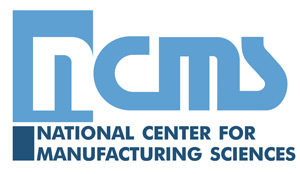Project Announcement: Development of Computer-Based Training for Maintenance and Supply Phase II
Large organizations frequently confront the high costs and limited effectiveness of training large numbers of personnel using traditional methods. These methods are typically based on a broad curriculum aimed at delivering material to trainees with diverse job functions; this material is usually taught once in a physical setting, providing trainees with few opportunities for subsequent engagement or to refresh their knowledge. To remedy these shortcomings, the United States Marine Corps (USMC) is piloting a Just-In-Time Learning (JITL) model for familiarizing marines with the business processes and software of the Global Combat Support System (GCSS-MC), the USMC’s global logistics system. This model relies on the creation of a library of video training by subject matter experts (SMEs), which will be made available to marines online 24/7.
The GCSS-MC has approximately 32,000 geographically dispersed users, many of whom shift between roles on a frequent basis. This, combined with the regular influx of new recruits and the upcoming R12 system upgrade, gives the USMC an acute need for an efficient, effective digital training solution that allows users to learn new material quickly and is compatible with GCSS-MC’s continuous development cycle. In the near term:
- The USMC needs to publicize the changes and new functionality that will accompany the R12 upgrade, as well as produce and disseminate related Interim Training materials.
- Online training on Warehouse Management, including the use of barcode readers and mobile applications, will need to be delivered to personnel across numerous small (1-2 employees) warehouses.
Because of cost and scale, traditional training methods are not a viable option. First, they are resource-intensive, requiring that instructors and oftentimes trainees travel to physical classrooms, incurring expenses and causing loss of productivity due to transit times. Second, the practice of training personnel in groups, whether or not they serve in similar roles, leads to wasted effort—one-size-fits-all courses force personnel to spend time learning material that is not relevant to their job function. Third, the imperative to cut costs can lead to training being inappropriately condensed; relevant material may be omitted altogether, to the detriment of trainees and the wider organization. Finally, long periods of classroom instruction strain trainees’ attention spans and the inability to access course content on-demand makes it difficult to retain and reinforce learned content. JITL, therefore, holds significant promise for improving the quality and efficiency of the UMSC’s training resources and serves as a useful implementation case for public or commercial entities that are themselves adopting a JITL model.
Those interested in participating in this project should contact Marc Sharp at by December 19, 2017. We encourage participation of Disadvantaged Business Enterprises (DBEs), including Minority Business Enterprises (MBEs) and Women’s Business Enterprises (WBEs).
